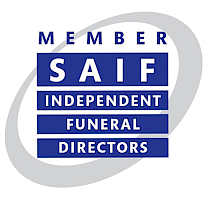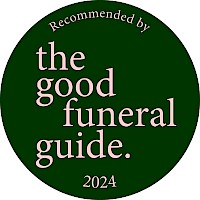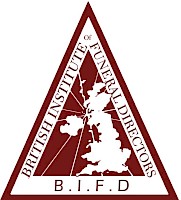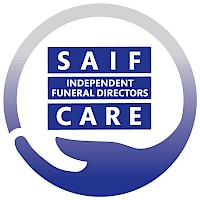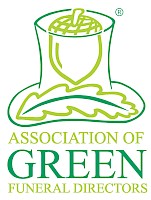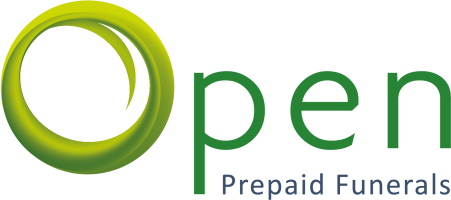Losing a person we love is always challenging.
Thankfully most of us will not have to face this challenge very often.
You may not know what to do when someone dies.
This guide will explain the practical steps that need to be taken after a death has occurred.
If you have any questions about this guide, or need any other information, please call Southgate and Roberts at any time 24 hours a day 7 days a week on 01473 805525.
Contents
The first thing you should do is call 999 and ask for an ambulance and the police.
The operator will advise on any action you can take before an ambulance arrives.
On arrival the paramedics will carry out resuscitation if they can, or verify the death.
You should leave the area around the person untouched apart from any attempt at resuscitation.
Any unexpected death will be referred to the coroner’s service.
You can call us on at any time on 01473 805525 to notify us or ask any questions.
If the death was expected, for example due to a terminal illness, you should contact the person's GP or call 111.
A doctor will attend to verify the death, and grant permission for the body to be moved.
Do you know if the person has a pre-aid funeral plan in place?
Call Southgate and Roberts on 01473 805525 at any time 24 hours a day 7 days a week.
We do not use call centres,so you’re guaranteed continuity of care from oursmall, dedicated and professionally qualified team.
(You can call us before the doctor attends to verify the death, but we will not be able to bring your loved one into our care until the doctor has been.)
The information we will definitely need when you call -
- Your name and contact details
- Your relationship to the person who has died
- The full name of the person who has died
- Their date of birth
- The address where the person has died
It is also helpful for us to know:
- The person’s home address (if different)
- Their faith or religion (if applicable)
- Their next of kin.
- The details of their GP surgery.
- Any nicknames or other names they are known by.
- Details of any funeral plan (if known)
- If the person is to be buried or cremated (if known)
- Their most recent occupation
- Whether or not they have a pacemaker
Once you call us, we will attend as soon as possible to bring the person who has died into our care.
(If you would prefer us to wait – for example, until members of the family have been able to see the deceased, just let us know)
In the time before we arrive,
Try to keep the room in which the deceased is laying cool - turn off any heating but keep all the windows closed.
If you choose to wash, dress or otherwise tend to the body you may do so, but please rest assured at Southgate and Roberts we pride ourselves on providing the highest possible standard of care to the deceased.
When we arrive, we will ask to be shown where the person is resting, we will then ask for someone present to sign a form releasing the body into our care, and confirming an itemised list of any jewellery or personal effect to be taken with them, and your instructions for them.
The person will then be brought back to our state-of-the-art mortuary facilities as 18-20 St Matthew’s Street, Ipswich, IP1 3EU.
Should anyone wish to visit the person once they are in our care, we can accommodate this, please call on 01473 805525 to arrange this.
When a person dies in hospital, their body will be moved to the hospital mortuary, until they can be released into our care.
You can call Southgate and Roberts on 01473 805525 at any time 24 hours a day 7 days a week.
You will be told by the hospital if the death needs to be referred to the coroner. – (Jump to coroner)
Otherwise, the death will need to be registered before the person’s body can be released by the hospital.
Some hospitals require their own form to be signed by the family instructing the funeral director, we will advise you if this is the case.
Do you know if the person has a funeral plan in place?
You can call us at any time to start the process of arranging the funeral.
The information we will definitely need when you call -
- Your name and contact details
- Your relationship to the person who has died
- The full name of the person who has died
- Their date of birth
- The hospital where the person has died
It is also helpful for us to know:
- The person’s home address
- Their faith or religion (if applicable)
- Their next of kin.
- The details of their GP surgery.
- Any nicknames or other names they are known by.
- Details of any funeral plan (if known)
- If the person is to be buried or cremated (if known)
- Their most recent occupation
- Whether or not they have a pacemaker
When your loved moves into a care home, nursing home or hospice, it is important that a record of instructions be kept regarding their funeral preferences.
A doctor will attend to verify the death, and grant permission for the body to be moved.
The death may need to be referred to the coroner – Jump to coroner
Otherwise, the care staff will contact Southgate and Roberts on your behalf.
Do you know if the person has a pre-aid funeral plan in place?
You can call Southgate and Roberts on 01473 805525 at any time 24 hours a day 7 days a week.
You can call us at any time to start the process of arranging the funeral.
The information we will definitely need when you call -
- Your name and contact details
- Your relationship to the person who has died
- The full name of the person who has died
- Their date of birth
It is also helpful for us to know:
- The person’s home address
- Their faith or religion (if applicable)
- Their next of kin.
- The details of their GP surgery.
- Any nicknames or other names they are known by.
- Details of any funeral plan (if known)
- If the person is to be buried or cremated (if known)
- Their most recent occupation
- Whether or not they have a pacemaker
A coroner is a doctor or lawyer appointed by a local authority to investigate certain deaths. They're completely independent of the authority and has a separate office and staff. You will find the address of your local coroner's office in the telephone directory.
A coroner can investigate a death if the body is in their district, even though the death took place somewhere else, for example, abroad.
A death must always be reported to a coroner in the following situations:
- The person's doctor had not seen them in the 28 days before they died or immediately afterwards
- A doctor had not looked after, seen or treated the person during their last illness (i.e. the death was sudden)
- The cause of death is unknown or uncertain
- The death was violent or unnatural (for example, suicide, accident or drug or alcohol overdose)
- The death was in any way suspicious
- The death took place during surgery or recovery from an anaesthetic
- The death took place in prison or police custody
- The death was caused by an industrial disease.
The body of the person who has died will normally be taken into the care of the coroner’s mortuary.
When a death is referred to the coroner, the body cannot be buried or cremated until the coroner has given permission to do so.
Inquests
An inquest is a legal inquiry into a death. Only a coroner can order an inquest and relatives have no right to insist on one.
It is held in public (sometimes with a jury) by a coroner where the death was violent or unnatural or took place in prison or police custody or where the cause of death is still uncertain after a post-mortem.
An inquest may take place into a death which took place abroad if the body has been returned to the UK.
Once the inquest has been held the death can be registered and the funeral can take place (in some cases the coroner may allow the funeral to go ahead before the inquest is over).
The coroner may order a post-mortem examination. You do not have the right to object to a post-mortem ordered by the coroner, but should tell the coroner if you have religious or other strong objections. In cases where a death is reported to a coroner because the person had not seen a doctor in the previous 28 days the coroner will consult with the person's GP and will usually not need to order a post-mortem.
For more information about post-mortems and your rights to know what happens with organs and tissue, go to the Human Tissue Authority website at www.hta.gov.uk.
A death reported to a coroner cannot be registered until the coroner's investigations are complete and a certificate has been issued allowing registration to take place.
In England and Wales the death should be registered within 5 days. You will need to contact registrar’s office local to where the person who has died.
You can start making funeral arrangements before you’ve registered the death.
Neither burial nor cremation can take place until the death has been registered.
(In some cases where a death is referred to the coroner, permission may be given to proceed with the funeral before registration)
In Suffolk, call on 0345 607 2050 to book an appointment or visit
https://www.suffolk.gov.uk/births-deaths-and-ceremonies/how-to-register-a-death/
If you are not sure which registrar to contact visit
Funeral Arrangements may be made however is most convenient to you and your family. Face to face meetings can be either in our arrangement suite, or in the comfort of your own home. Alternatively, all arrangements can be made remotely via telephone or video call.
At Southgate and Roberts we understand that every family has different needs, we offer funeral services to suit all situations and budgets.
We are available 24 hours a day 7 days a week for advice or guidance on the various options available.
Some things you may wish to consider when arranging a funeral;
- Will the funeral be a Burial, Cremation or Repatriation?
- Where should the funeral be held?
- Should the service be religious?
- When should the funeral be held? (Are there any dates or times that must be avoided?)
Please don’t hesitate to contact us with any questions about
Greener and eco-friendly funerals, alternative vehicles, coffins and caskets, floral tributes, memorial stationery, printed and online obituaries, music and visual tributes, webcasting a nd recording, keepsake jewellery, designed to hold your loved ones cremated remains, etched with their fingerprints or even handwriting, urns and ashes scattering, memorial masonry, undersea memorials, launching ashes into orbit and many other products and services.
Go to our dedicated page 'Help with Costs'
Saif Care
Cruse Bereavement
Bereavement UK
Child Bereavement UK
LivinGrief – Suffolk Local
Survivors of Bereavement by Suicide
Widowed and Young
For more information or to arrange a consultation: Call: 01473 805 525 | Email: contact@southgateandroberts.com

